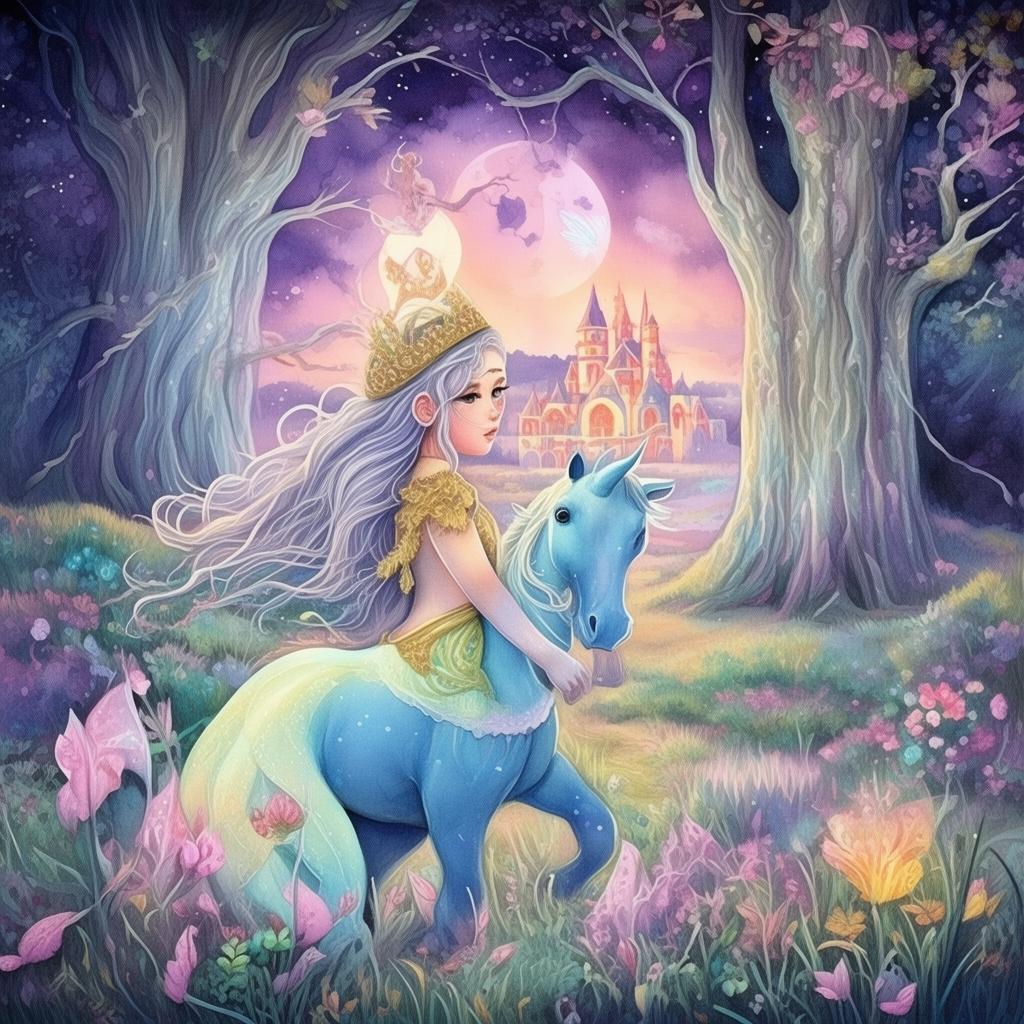The Puppet's Dilemma: A Quest for Identity
Once upon a time, in a quaint village nestled between rolling hills and whispering forests, there lived a puppet named Zephyr. Unlike the other puppets who danced and sang to the whims of their masters, Zephyr was different. He was a philosopher at heart, a puppet with a soul that yearned for meaning beyond the strings that controlled his movements.
One day, as Zephyr sat in the corner of his master's attic, he overheard a conversation between his master and a visiting scholar. The scholar spoke of the nature of existence, the essence of self, and the pursuit of truth. Zephyr's curiosity was piqued, and he found himself drawn to the scholar's words.
As the days passed, Zephyr's fascination with philosophy grew. He began to question everything: his existence, the purpose of his life, and the very essence of reality. He knew that he was a puppet, a creation of wood and string, but he also felt a sense of being that transcended his physical form.

One evening, as the moon cast its silver glow over the village, Zephyr decided to embark on a quest to find the answers he sought. He knew that his journey would be fraught with challenges, but he was determined to uncover the truth about his identity.
His first stop was the Great Library of Eldoria, a vast repository of knowledge that housed the wisdom of centuries. Zephyr spent days and nights poring over ancient scrolls and philosophical treatises, searching for clues about his own nature. He discovered that many philosophers had grappled with similar questions, but none had found a definitive answer.
One day, as Zephyr was reading a particularly dense tome, he stumbled upon a passage that spoke of a mythical creature known as the "Eidolon," a being that could grant wisdom to those who sought it. Zephyr's heart raced with excitement. If he could find the Eidolon, perhaps he could find the answers he was looking for.
With renewed determination, Zephyr set out on foot, traversing through treacherous mountains and dense forests. Along the way, he encountered various creatures, both friendly and foe, each presenting their own dilemmas and challenges. One such creature was a wise old owl named Orin, who taught Zephyr the importance of patience and the value of listening to one's inner voice.
As Zephyr continued his journey, he began to realize that the quest for identity was not just about finding answers to his questions, but also about facing his own fears and insecurities. He had to confront the fact that he was a puppet, a creation without free will, and yet he felt a profound sense of self that defied his physical limitations.
One evening, as the sun dipped below the horizon, Zephyr arrived at the entrance of a hidden cave. Inside, he found the Eidolon, a majestic figure made of light and shadow. The Eidolon spoke to Zephyr, not in words, but in a series of riddles and paradoxes that challenged his understanding of reality.
The first riddle was simple yet profound: "What is it that is always with you, yet you can never touch?" Zephyr pondered the question for hours, eventually realizing that the answer was his own consciousness, his sense of self that could never be grasped or contained.
The next riddle was more complex: "If you were to cut off your own hand, would you still be you?" Zephyr's mind raced as he considered the implications of the question. He realized that while his physical form was not essential to his identity, it was an integral part of who he was.
The final riddle was the most challenging: "What is the difference between a dream and reality?" Zephyr struggled with this question, eventually understanding that the difference lay in the perception of the observer. What was real was not determined by external factors, but by the individual's belief in it.
With these insights, Zephyr felt a profound sense of clarity and peace. He realized that his quest for identity was not about finding a definitive answer, but about embracing the journey itself. He was a puppet, but he was also a sentient being with the capacity for thought, emotion, and self-awareness.
As Zephyr made his way back to the village, he carried with him a newfound sense of purpose. He returned to his master's attic, not as a puppet seeking answers, but as a philosopher who had found his own path. He shared his experiences with the villagers, inspiring them to question their own lives and seek meaning in their own unique ways.
And so, Zephyr's quest for identity became a legend, a tale of a puppet who dared to ask the big questions and find his own truth. In the end, it was not the answers that defined him, but the journey and the wisdom he gained along the way.
✨ Original Statement ✨
All articles published on this website (including but not limited to text, images, videos, and other content) are original or authorized for reposting and are protected by relevant laws. Without the explicit written permission of this website, no individual or organization may copy, modify, repost, or use the content for commercial purposes.
If you need to quote or cooperate, please contact this site for authorization. We reserve the right to pursue legal responsibility for any unauthorized use.
Hereby declared.









